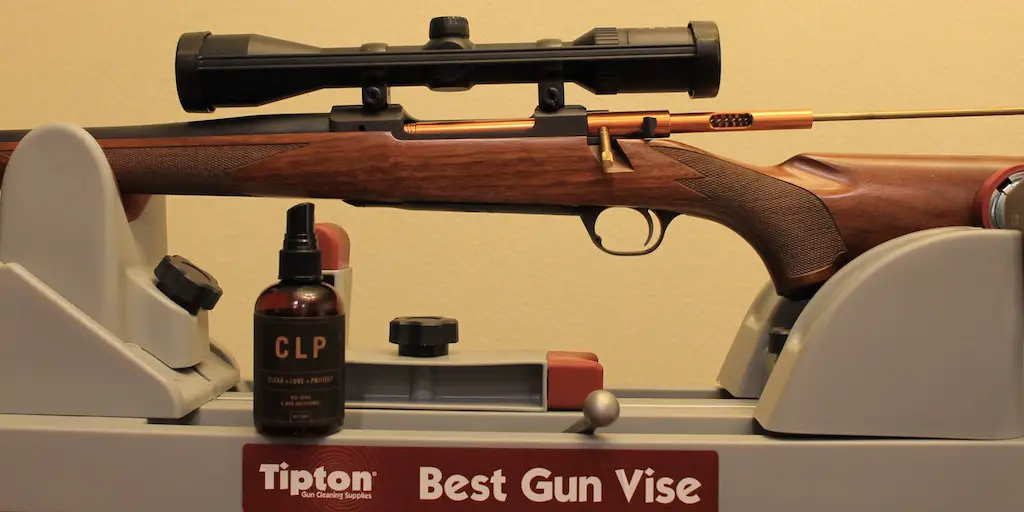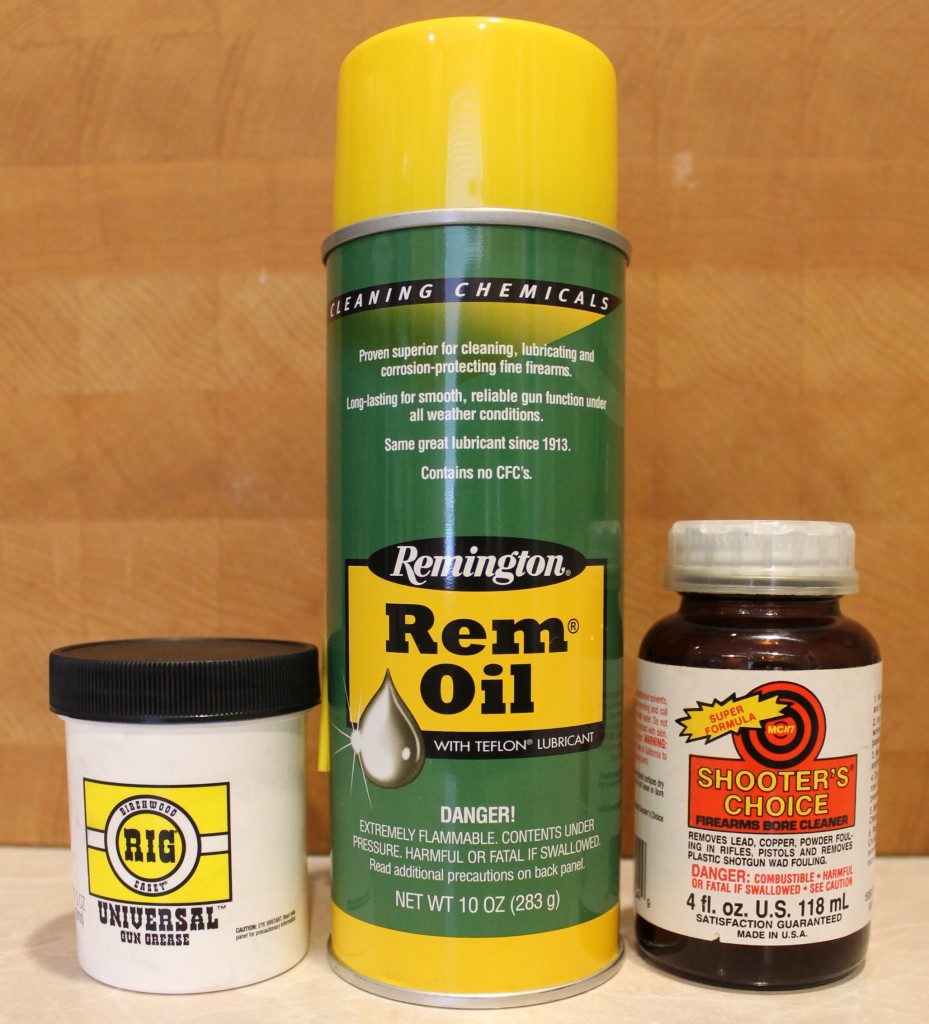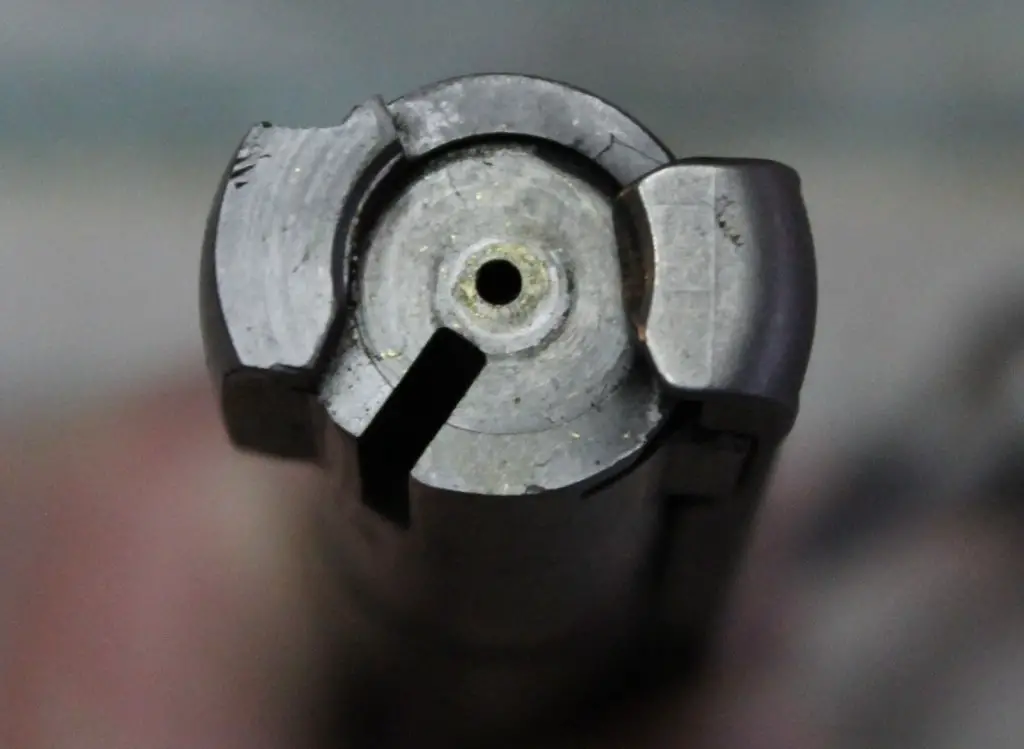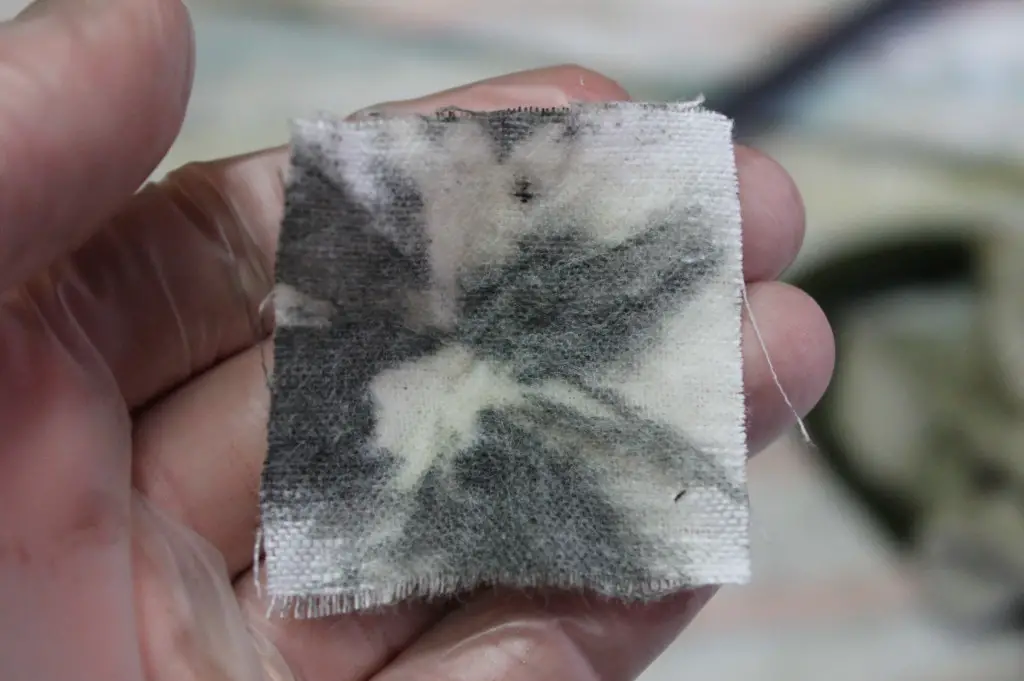Follow these steps on how to clean a bolt action rifle in order to ensure it shoots accurately and functions reliably when you need it most.
A good rifle is one of the most important (and expensive) pieces of equipment for many hunters all over the the world. Hunting, especially in extremely rainy or snowy weather, can really put a rifle to the test. The last thing a hunter wants is for his or her rifle to fail them at a critical moment on the hunt of a lifetime. Luckily, a rifle that is properly cleaned and maintained will function reliably for many years. Here’s how to clean a bolt action rifle.
Note: Though this article is focused on how to clean a bolt action rifle, the same basic steps apply for cleaning just about any firearm from .223 Remington to 6.5 Creedmoor to .45-70 Government. The details will vary from model to model of course, and a semi-automatic firearm normally requires a couple of extra steps, but the basics outlined in this article are still a good place to start.
Before we get started, I have an administrative note:
Some of the links below are affiliate links. This means I will earn a small commission (at no extra cost to you) if you make a purchase. This helps support the blog and allows me to continue to create free content that’s useful to hunters like yourself. Thanks for your support.
How To Clean A Bolt Action Rifle: Getting Started
All firearms have two mortal enemies: salt and water. Over time, these two thing can destroy any firearm. So, the primary purpose of cleaning your rifle should be to remove salt and water before they have a chance to damage your rifle. Dirt, powder residue, and copper/lead fouling are also things that you want to remove from your rifle to preserve proper functioning and maintain a high level of accuracy. However, own their own, they will not actually damage your rifle.
The first thing you need to properly clean a bolt action rifle is a good gun cleaning kit. You can find cleaning kits at most sporting goods stores for a reasonable price. The contents and quality of these kits varies, but I like to add a few items. My gun cleaning kit consists of a cleaning rod, a bore snake, various sized bore brushes (.22 caliber, .30 caliber, .45 caliber, .etc.), a cleaning jag, patches, a flashlight, a gun vice, a bore guide, a multi-tool, a cleaning rag, a barber brush, brass picks, nylon and brass brushes, cleaning solvent, and lubricant.
It really doesn’t matter which specific solvents, lubricants, and grease you use. Though I use Sage & Braker’s non-toxic CLP (which is awesome), there are a number of other good options out there like Hoppe’s #9.
When cleaning any firearm, I like to wear a pair of cheap, disposable vinyl or latex gloves. This helps keep my hands from getting covered in cleaning solvents, which are often toxic and seem impossible to wash off. It also protects the gun from the oils in my skin (which contain salt). When I’m finished cleaning, I simply throw the gloves away.
Additionally, you can purchase purpose built, microfiber gun rags. These will certainly work, but an old t-shirt will perform the same job nearly as well in a pinch. I also like to use gun cleaning mat to cover and protect my work area from spills.
The first step in cleaning a bolt action rifle is to ensure that it is unloaded. This may sound obvious, but it is a step that is often neglected and countless people each year are shot while trying to clean “unloaded” firearms. First, remove the magazine (if the rifle has a detachable magazine). Then, open the action and inspect the chamber and the magazine (if the rifle has a fixed magazine) to ensure that the rifle is indeed unloaded.
Remove any ammunition that you find in the magazine or the chamber and physically separate it from the rifle until you are done cleaning it. Once you have ensured the rifle is unloaded, check one more time. You can’t be too careful here.
The level of cleaning that you should perform on your rifle varies depending on the conditions the rifle has experienced. For instance, a trip to the range where you fired a dozen or so rounds of non-corrosive ammunition probably only warrants a routine cleaning. However, you should give your rifle an extremely thorough cleaning if you just returned from an extended hunting trip where your rifle got really wet or dirty. If you use corrosive ammunition, that also warrants a special, more involved cleaning of the rifle.
How To Clean A Bolt Action Rifle: Routine Cleaning
For routine cleaning of a bolt action rifle, only disassemble to the extent recommended by the manufacturer in the rifle’s manual. For most bolt action rifles, this means removing the bolt and either removing the magazine or opening the magazine floorplate. Removing the bolt is usually a very simple operation. If you don’t know how to remove the bolt of your particular rifle, consult the manual. The next thing I like to do is use a barber brush to clean all of the dust and dirt off the outside of the rifle. A barber brush is really good at getting into all of the hard to reach nooks and crannies on a rifle that are tough to clean with a rag.
First, either spray some CLP down the barrel or push a patch soaked in solvent through the barrel (from chamber to muzzle). Then, let the rifle sit for a couple of minutes.
Before you run a cleaning rod down the barrel, insert a bore guide first to prevent accidental damage to the throat.
While you’re letting the solvent work in the barrel, spray a little cleaner on a rag and wipe down the bolt. Pay particular attention to the bolt face and the extractor. Use your toothbrush to clean all the tiny crevices and behind the extractor.
After cleaning the bolt face, pour some solvent on the appropriate size bore brush (do not dip the brush in solvent), then run it through the barrel 5-10 times to loosen fouling in the barrel. Always insert the rod from the breech through the bore guide and always run the brush completely through the barrel until it exits the muzzle before pulling it back.
Then, run a few patches through the barrel to clean out all the fouling the brush loosened. Always push patches from chamber to the muzzle and remove the dirty patches before pulling the cleaning rod back to the chamber. Continue to do this until a patch comes out clean.
As you can see in the photo below, the first few patches will be very dirty, usually black with a possible green tint. The black color is from carbon and/or lead fouling. The green is copper fouling.
Once get a clean patch, soak one lightly in oil and then run it down the barrel to protect against rust.
If you’re using a good quality bore snake, you can combine all of those steps listed above involving patches and brushes into just 1-2 passes with a bore snake. Either way will clean the rifle bore, but it’s much faster to use one of those bore snakes.
Once that’s done, spray a little bit of cleaning solution on your cleaning cloth and clean all of the metal parts of the rifle you can reach. Specifically, you’re trying to clean all of the remaining parts of the rifle, like the rest of the bolt, the bolt tracks in the action, the magazine or floorplate, and the outside of the barrel.
Before replacing the bolt, slightly lubricate the rear of the locking lugs and the cocking cam. I prefer to use grease here, though some people use oil (each will work well under the appropriate conditions). Either way, use a very small amount. A little goes a long way and excess lubrication will attract dirt, which can gum up the action.
After lubricating the bolt, reassemble the rifle for storage. Also, ensure that there is no build up of oil or grease that may obstruct the barrel. Any obstruction in the barrel can result in an extremely dangerous situation next time you shoot the rifle.
Be careful not to touch any metal parts of the rifle with your bare skin. The miniscule amounts of salt naturally present in the oils of your skin can damage the metal over a long enough period of time. Finally, when you store the rifle, keep it in a cool, dry place.
Do not store your rifle in a leather or cloth case for long periods of time. These cases can retain moisture and cause the rifle to rust. It would be a real shame to remove your favorite rifle from the safe before a big hunt, but discover that rust formed on it because you stored it improperly.
How To Clean A Bolt Action Rifle: In Depth Cleaning
To thoroughly clean your rifle, simply disassemble it as much as possible according to the manufacturers instructions. This will likely involve removing the stock, the scope, and disassembling the bolt. This is obviously a much more involved process, and it may be necessary to have a gunsmith clean the rifle for you if you don’t know what you’re doing.
Once the rifle is disassembled, clean the individual pieces in the same manner as you would during a routine cleaning: with the toothbrush/rag and cleaning solution. You’re not really doing anything different here, just cleaning some additional pieces. Fortunately, it is not normally necessary to perform a deep cleaning on a rifle like this unless it was exposed to extreme conditions or was dropped in a body of water.
Cleaning After Using Corrosive Ammunition
If you are using black powder, a black powder substitute, or surplus military ammunition, especially surplus Russian or Warsaw Pact 7.62x54mm or 7.62x39mm ammo, there is a possibility that the ammunition is corrosive. Besides being inexpensive, corrosive ammunition is usually very stable and will typically last for a long time. However, firing corrosive ammunition will deposit small amounts of salt on the bolt face and in the barrel.
This is obviously very bad because the salt will cause the rifle to rust when exposed to water, even in the form of natural humidity. Luckily, things aren’t as bad as they sound. It just means you need to thoroughly clean your rifle as soon as possible after shooting corrosive ammunition.
The salts deposited by firing corrosive ammunition cannot be neutralized. The only way to deal with them is to completely remove them out of your rifle. Several companies make products designed to clean these corrosive deposits out of rifles. However, the most commonly used method is to clean the rifle with water.
To do that, run several water soaked patches (the hotter the better) through the barrel from chamber to muzzle. This will dissolve the salt deposits and remove them from the barrel. You can add soap or ammonia to help clean the salts out of the barrel, but it’s not required. When complete, run a few dry patches through the barrel. Don’t forget to clean the bolt face as well. If possible, you can also disassemble the bolt and clean the internal components, though it’s not essential to do this.
Finally, clean the barrel and the rest of the rifle as you normally would.
I hope that you’ve found this article on how to clean a bolt action rifle helpful and informative. Done properly, cleaning a rifle does not take very much time and will help ensure that your favorite rifle lasts for many years of good hunting.
Enjoy this article on how to clean a bolt action rifle? Please share it with your friends on Facebook and Twitter.
Make sure you follow The Big Game Hunting Blog on Facebook, Instagram, Twitter, and YouTube.
NEXT: HOW TO MOUNT A SCOPE ON A RIFLE IN 6 EASY STEPS
John McAdams is a proficient blogger, experienced shooter, and long time hunter who has pursued big game in 8 different countries on 3 separate continents. John graduated from the United States Military Academy at West Point and is a veteran of combat tours with the US Army in Iraq & Afghanistan. In addition to founding and writing for The Big Game Hunting Blog, John has written for outdoor publications like Bear Hunting Magazine, The Texas State Rifle Association newsletter, Texas Wildlife Magazine, & Wide Open Spaces. Learn more about John here, read some of John’s most popular articles, and be sure to subscribe to his show: the Big Game Hunting Podcast.






Love your articles
Thanks Christopher!
Thanks for the information. I’m pretty old and just looking to see if cleaning procedures have changed
I never tried hot water before but sounds reasonable. Keep up the good work.